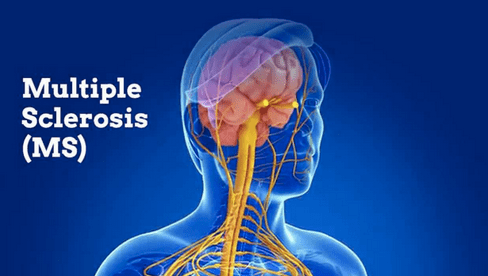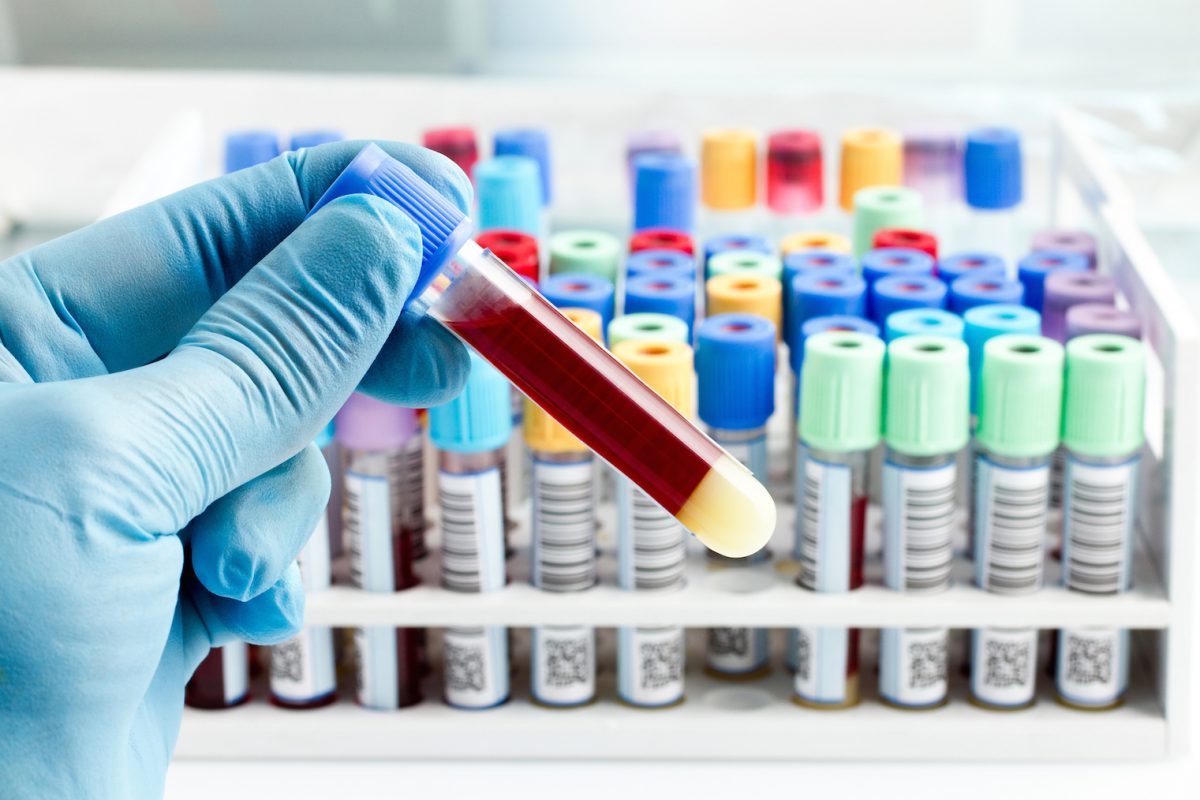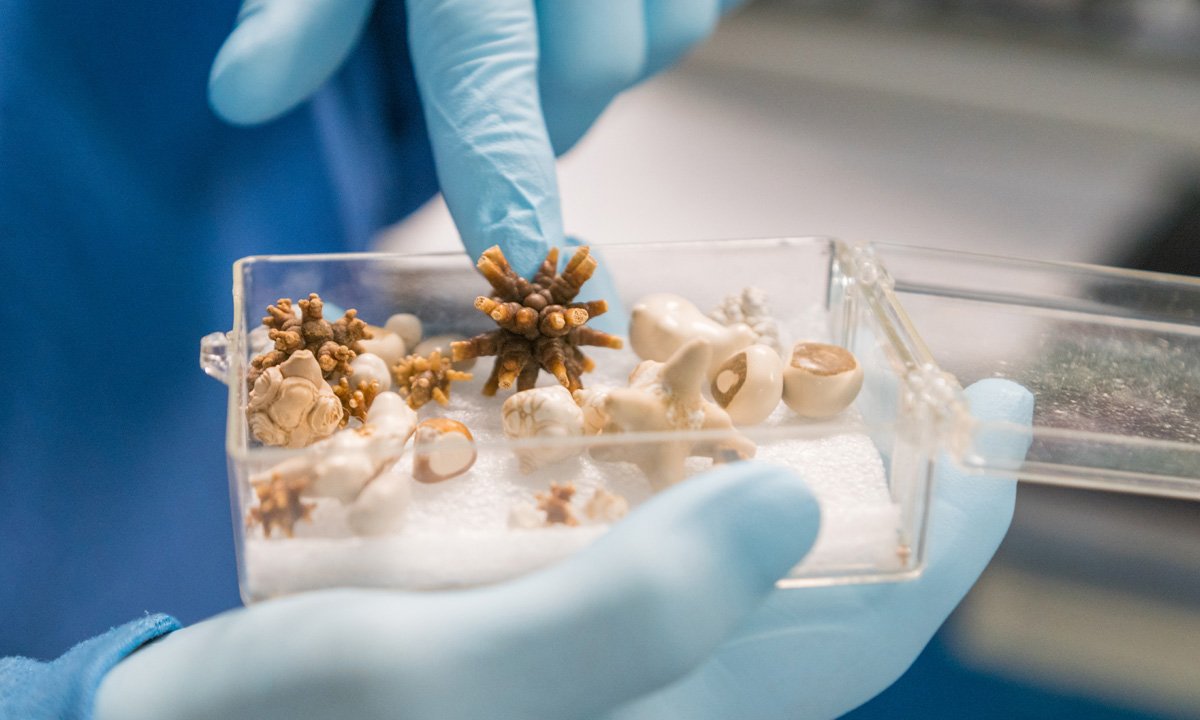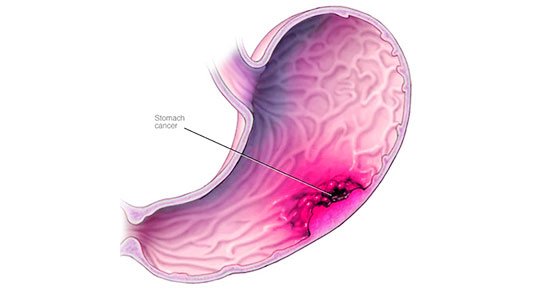Symptoms and treatment of liver cancer
Liver cancer is a malignant tumor that kills many people every year. Liver cancer is more common in men, and cirrhosis of the liver is one of the most important causes. This cancer is cancer that starts in the liver cells. The liver is an organ located in the upper right abdomen, below the diaphragm, and above the waist. Hepatocellular carcinoma is the most common type of liver cancer.
Other types of this cancer, such as intra-anterior cholangiocarcinoma and hepatoblastoma, are less common. You should know that not all cancers that affect the liver are considered this cancer.
Cancer that starts in another part of the body, such as the colon, lungs, or breast, and then spreads to the liver, is called metastatic cancer, not liver cancer.
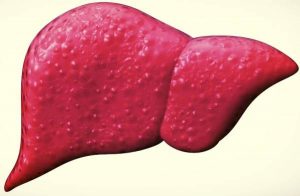
Symptoms of liver cancer:
Most people have no symptoms in the early stages of this cancer. Signs and symptoms may include the following:
- Weight loss for no reason
- Loss of appetite
- stomach ache
- nausea and vomiting
- General weakness and fatigue
- Yellow skin and yellowing of the whites of the eyes
- Unusual inflation

When to see a doctor?
See your doctor if you notice any signs or symptoms that you are worried about.
Rare symptoms of liver cancer:
Some liver cancers secrete hormones that can cause other symptoms as hypoglycemia can lead to death and fainting, especially in people who have not eaten for some time.
What are the different types of primary liver cancer?
Different types of this cancer are made up of varying liver cells. Primary liver cancer can start as a gland in the liver, or it can begin in many parts of the liver, and people with severe liver damage are more likely to get it.
The main types of this cancer are:
Liver cell cancer
Hepatocellular carcinoma is one of the most common cancers globally and accounts for about 75% of liver cancers. This condition occurs in the liver cells, which are the dominant cells of the liver, and can spread from the liver to other parts of the body, such as the pancreas, intestines, and stomach.
Cholangiocarcinoma
Cholangiocarcinoma is more commonly known as bile duct cancer and spreads to the small bile ducts and tubular liver. These bile ducts travel to the gallbladder to help digest food. But bile duct cancer accounts for 10 to 20 percent of all types of this cancer.
Hepatic angiosarcoma
Liver angiosarcoma is a type of this cancer that starts in the blood vessels of the liver. This type of cancer progresses rapidly, so it is usually diagnosed at a more advanced stage.
Hepatoblastoma
Hepatoblastoma is a rare type of this cancer and is almost always found in children, especially children under three years of age. There is a possibility of improvement with surgery and chemotherapy.
When hepatoblastoma is diagnosed early, the survival rate increases to 90%
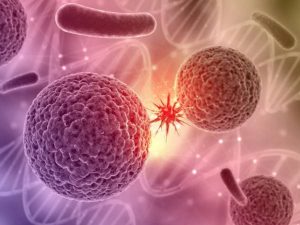
Causes of liver cancer:
It is not known what causes this cancer, but in some cases, it may be that chronic infection with some hepatitis viruses, for example, can cause this cancer.
Liver cancer occurs when liver cells make changes (mutations) in their DNA. One result is that the cells may get out of control and eventually form a tumor.
Risk factors for liver cancer:
Factors that increase the risk of primary cancer include:
Chronic infection with HBV or HCV, Chronic infection with hepatitis B virus (HBV), or hepatitis C virus (HCV) increases cancer risk.
Cirrhosis
These progressive and irreversible conditions lead to liver ulcers and an increased risk of this cancer. Some liver diseases are inherited. Liver diseases that can increase the risk of this cancer include hemochromatosis and Wilson’s disease.
Diabetes
People with this blood sugar disorder are more prone to liver cancer.
Factors that cause liver cancer:
Non-alcoholic fatty liver disease
Accumulation of fat in the liver increases the risk of this cancer.
Exposure to aflatoxins
Aflatoxins are toxins produced by molds that grow on crops and are poorly maintained. Products such as corn and peanuts can be contaminated with aflatoxins.
alcohol consumption
Excessive alcohol consumption over the years can lead to irreversible liver damage and increase the risk of this cancer.
Liver cancer prevention:
Reduce the risk of cirrhosis
Cirrhosis causes ulcers in the liver and increases the risk of liver cancer. By doing this, you can reduce the risk of cirrhosis:
Have a healthy weight
If your current weight is sound, try to maintain it by choosing a healthy diet and exercising more days of the week. If you need to lose weight, reduce the number of calories you eat per day and increase your exercise.
Hepatitis B vaccination
You can reduce your risk of getting hepatitis B by getting a vaccine that protects more than 90% of children and adults. There is no vaccine for hepatitis C, but you can reduce the risk of infection.
Do not use ampoules, but if you use clean ampoules
Reduce your risk by not injecting illegal drugs.

Look for clean and safe stores for tattoos.
Needles that are not adequately disinfected can spread the hepatitis C virus.
Ask your doctor about liver cancer:
This cancer screening has been shown to reduce the risk of death from this cancer, so it is generally recommended that liver cancer screening be performed for high-risk individuals, including those at risk. :
Hepatitis B and one or more other cases:
- Being Asian or African
- With cirrhosis of the liver
- Or a family history of liver cancer
Hepatitis C and liver cirrhosis
Cirrhosis of the liver is another cause, such as autoimmune disease, excessive alcohol consumption, non-alcoholic trans fat disease, and hereditary hemochromatosis.
Primary biliary cirrhosis
Talk to your doctor about the pros and cons of screening. Screening every six months usually includes an ultrasound test.
Who is at risk for liver cancer?
Doctors are not sure why some people get this cancer, and others do not.
However, certain factors increase the risk of this cancer:
Liver cancer is more common in people over the age of 50.
Prolonged hepatitis B or C infection can damage your liver. Hepatitis is transmitted through direct contact with an infected person’s body fluids, such as blood or semen. It can also be passed from mother to baby during childbirth.
Cirrhosis is a type of liver injury in which healthy tissue is replaced by damaged tissue. A damaged liver can not function properly and can eventually lead to many problems, including liver cancer.
Aflatoxin exposure is a risk factor. Aflatoxin is a toxic substance produced by a mold that can grow on peanuts, grains, and corn.
Diabetes and obesity are risk factors.
People with diabetes are overweight or obese, leading to liver problems and increasing the risk of liver cancer.
Diagnosis of liver cancer:
Tests and methods used to diagnose this cancer include the following:
blood test
Blood tests may show abnormal liver function.
Imaging tests
Your doctor may recommend imaging tests such as ultrasound, CT scans, and MRIs.
Take a sample of liver tissue for testing.
Your doctor may recommend that you have a piece of liver tissue removed for a laboratory test to make a definitive diagnosis of this cancer.
How is liver cancer diagnosed?
Determining the rate of this cancer
After being diagnosed with this cancer, your doctor will do something to determine the extent (stage) of cancer. Visual examinations help determine the size and location of cancer and its prevalence. Imaging experiments are essential here.
There are several ways to diagnose this cancer. Numerical methods use I to four, and others use the letters A to D.
Stage 4 and stage D show the highest rates of this cancer with the worst prognosis.
Treatment of liver cancer:
Treatment for primary cancer depends on the stage (stage) of the disease, age, general health, and personal preferences.
surgery
Surgery used to treat this cancer includes the following:
Surgery to remove the tumor
In some cases, if the tumor is small and the liver is functioning well, your doctor may recommend surgery to remove this cancer and a small portion of healthy liver tissue.
Liver Transplant Surgery
During a liver transplant, the patient’s liver is removed, and a donor replaces a healthy liver.
Topical treatment of liver cancer
Topical treatments for this cancer are treatments given directly to or around cancer cells.
Topical treatment options for this cancer include:
Warming up cancer cells
In a radio frequency erosion method, an electric current is used to heat and kill cancer cells. Using ultrasound and CT scans as a guide and one or more thin needles are inserted into your abdomen through a small incision in surgery.
When the needles reach the tumor, they are electrically heated and kill the cancer cells. Cancer cell cryopreservation: Cryoblisis uses the common cold to kill cancer cells.
During this procedure, the doctor places a device containing liquid nitrogen directly on the liver tumors.
Chemotherapy injects drugs into the liver.
Chemotherapy involves the administration of drugs that kill cancer cells.
Liver cancer treatments:
Radiotherapy
This method uses high-energy energy from X-rays and protons to kill cancer cells and small tumors. Doctors carefully transfer this energy to the liver and maintain the surrounding healthy tissue.
During external beam therapy, you sit on a table, and a device directs energy beams to a precise point in your body.
A particular type of radiation therapy, called stereotactic radiation surgery, involves focusing on multiple rays at one point in your body at the same time.
Targeted drug treatment
Targeted drugs work by interfering with specific tumor disorders. Further studies are needed to understand how targeted therapies can be used to control advanced cancer.
Supportive care (soothing)
Intensive care is focused on providing pain relief and other symptoms of a severe illness. Health professionals will work with you, your family, and other doctors for further support.
Health care can be provided during other treatments such as surgery, chemotherapy, or radiation therapy.
People with cancer may feel better about using palliative care with other appropriate treatments.
Liver Cancer Nutrition Guide:
When diagnosing cancer, nutrition can be an essential part of your routine. Having a balanced diet before, during, and after cancer treatment can help you feel better, stay strong, and speed up your recovery.
Have a healthy weight
The goal is to prevent or lose weight during treatment.
A strict diet is not recommended.
Losing weight can lower your energy levels and reduce your body’s ability to fight infection.
Eat small, frequent meals throughout the day.
Eating low-carb meals will give your body enough calories, protein, and nutrients to fight. Small meals may also help reduce side effects such as nausea.
Good foods for liver cancer patients
Protein helps the body repair cells and tissues and improves the immune system. Good sources of lean protein are:
- Lean meats such as chicken, fish, or turkey
- egg
- Low-fat dairy products such as milk, yogurt, cheese, or dairy substitutes
- Nuts and hazelnuts
- Beans
- Soy foods

Liver cancer and the importance of nutrition in its treatment
Whole foods
Whole grains are a good source of carbohydrates and fiber to help maintain your energy levels. Good sources of cereals:
- Oatmeal
- Whole wheat bread
- Brown rice
- Wholemeal pasta
Eat a variety of fruits and vegetables every day:
Fruits and vegetables have antioxidants in the body that can help fight cancer. Choose a variety of colorful fruits and vegetables to get the most benefit. The goal is to eat at least five servings of fruits and vegetables.
Diet for these cancer patients
Choose healthy fat sources:
Avoid fried and fatty foods and choose cooked and grilled foods.
Healthy fats include:
- olive oil
- Avocado
- Nuts
- Grains
Avoid nutrition for liver cancer
Limit sweets and sugar
Foods that are high in sugar, such as desserts and sweets
Stay hydrated
Drinking enough fluids during cancer treatment is essential to prevent dehydration.
Reduce caffeine intake
Avoid drinking large amounts of caffeinated beverages as it can lead to dehydration.
Observe good food security
Wash your hands while preparing food. Use different knives to cut raw meat and raw vegetables.

Everything about liver cancer:
Talk to your healthcare team before taking vitamins and supplements. Some cancer medications and treatments may interfere with vitamins and supplements.
You may experience side effects that affect your ability to follow these suggestions.
If you experience side effects such as loss of appetite, nausea, diarrhea, vomiting, or other worries, your needs will differ.



